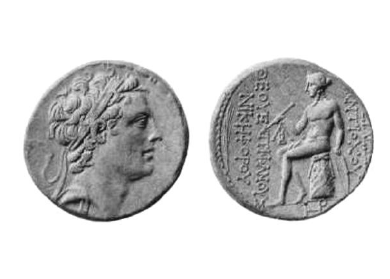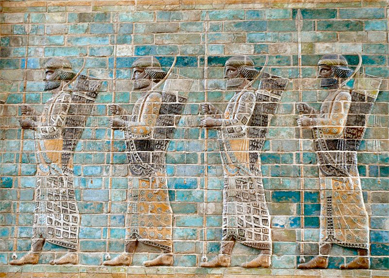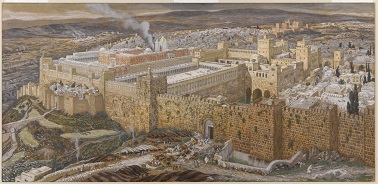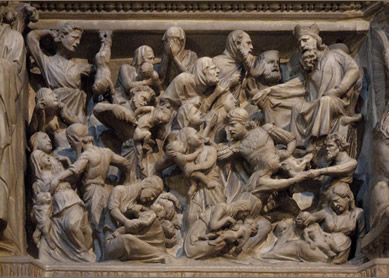The Maccabees were a family of Jewish priests who freed Judea from foreign rule during the latter half of the second century BCE. Their military success led to the establishment of the first native monarchy to rule Israel since the Babylonian exile. Although their dynasty was eventually eclipsed by Herod the Great in 37 BCE, the Maccabees’ impact on subsequent Jewish history was significant. Many elements of early Judaism owe their development to the Maccabean achievement.
Why was Judas called “the Maccabee”?
The name “Maccabee” properly belongs only to the first member of the family to achieve notoriety: Judas Maccabeus—in Hebrew, Yehudah Ha-Maqbi (“Judah the Hammer”), possibly a boast about his military success in “hammering” Israel’s enemies. Judas was one of five sons of a priest named Mattathias. In Jewish sources, Mattathias and his descendants are called the “Sons [or House] of Hashmonay,” after Mattathias’s grandfather or great-grandfather. Hence, moderns also refer to the Maccabees as the Hasmoneans.
How did the Maccabees impact Jewish history and religion?
At the time the Hasmoneans rose to prominence, the Jews of Judea were subjects of the Seleucids, the Hellenistic dynasty that had ruled most of western Asia since the beginning of the third century BCE. Like most ancient empires, the Seleucids were generally respectful of their subjects’ religious practices, patronizing local temples and their personnel. This incentivized their subjects to accept their rule and not rebel.
This pattern of concord broke down during the reign of Antiochus IV Epiphanes (ruled 175-164 BCE), who alienated many of his Jewish subjects by appointing an unpopular high priest, fleecing the Jerusalem temple of its treasures, installing a garrison, and violently suppressing all Jewish religious observance. The king’s ultimate offense, in the eyes of those who opposed him, was his dedication of the temple to Olympian Zeus. This involved the erection of a pagan altar, which Jewish sources excoriate as “the abominating desolation.”
Jewish reaction to Antiochus’s depredations was immediate and widespread, ranging from avoidance of the king’s minions to voluntary martyrdom to militant resistance. The last of these was spearheaded by the Maccabees—first by Mattathias, then by Judas and his brothers. Zeal for God’s law was their rallying cry, modelled on the biblical tale of the priest, Phinehas, who saved Israel from catastrophe by slaying those who violated the covenant.
Judas’s guerilla raids quickly morphed into full-scale battles. Initial success in these engagements enabled Judas to seize the temple mount, purge it of its pagan accretions, and rededicate it to the God of Israel. This became the occasion for the annual commemoration of Hanukkah. Eventually, however, the Maccabean forces were unable to repulse the Seleucid army and were compelled to withdraw, precipitating negotiations that resulted in the rescinding of the king’s oppressive policies.
Not satisfied with this resumption of the status quo, Judas fought on, endeavoring (unsuccessfully) to depose the high priest appointed by Antiochus’s successor. In spite of his tenacity, Judas fell in battle, a setback that might have terminated the Maccabean cause had not his brother, Jonathan, negotiated a truce. In time, Jonathan foiled his domestic rivals by collaborating with the Seleucid regime, obtaining for himself the high priesthood. As the regime began to degenerate into deadly warfare, Jonathan’s brother Simon exploited the distraction to overpower and expel the Seleucid garrison from Jerusalem.
Although Simon touted this undoing of Antiochus’s legacy as Israel’s liberation from “the yoke of the gentiles,” Seleucid hegemony remained a reality. It was successfully reasserted a few years after Simon’s death and, though it again fell into abeyance, this was due more to Seleucid weakness than to Hasmonean strength. Nevertheless, in the course of defending their temple and their nation, the sons of Mattathias and their descendants came to wield unprecedented power, combining high priestly office with military and political dictatorship and ultimately claiming royal honors.
Not all Jews were prepared to grant legitimacy to this authoritarian innovation. As criticism of the Hasmoneans mounted, sectarian differences hardened, polarizing groups like the Pharisees and Sadducees—as well, very likely, as the community that produced the Dead Sea Scrolls. Dissatisfaction with Hasmonean kingship also coincided with the emergence of messianic interpretations of Israel’s scriptures: hopes for a better future contrasted with the increasingly oppressive present experience of Hasmonean monarchy.




